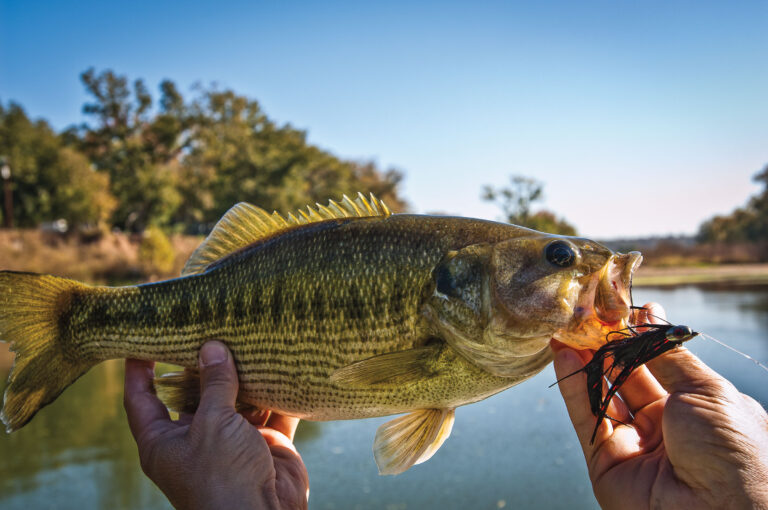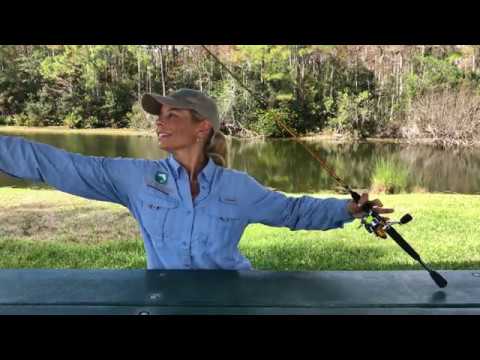When Do I Need to Renew My Fishing License? Essential Guide
You need to renew your fishing license every year. The exact date varies by state.
Always check your local regulations to avoid fines or penalties. Fishing is a cherished pastime for many. Whether you’re casting a line in a serene lake or deep sea fishing, having a valid fishing license is crucial. These licenses help regulate fishing and protect aquatic wildlife.
But remembering when to renew your fishing license can be tricky. Each state has its own rules and timelines. Missing the renewal date can result in hefty fines. Understanding the renewal process can save you money and ensure you stay compliant. Let’s dive into the specifics of when and how to renew your fishing license. This guide will help you stay on the right track and enjoy your fishing adventures without any legal issues.
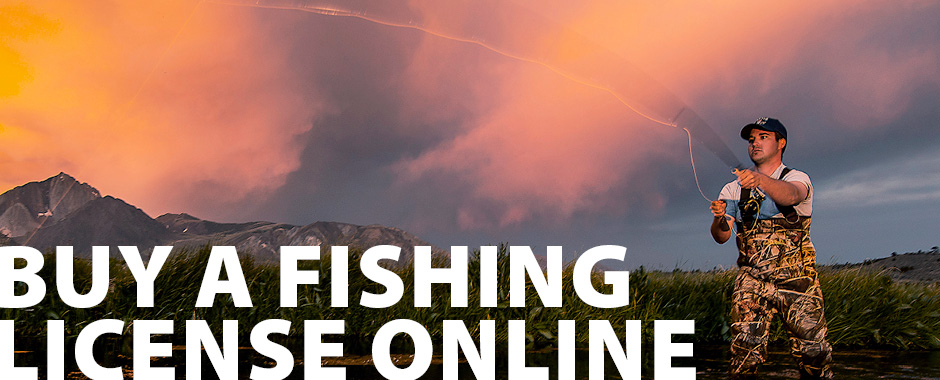
Credit: wildlife.ca.gov
Introduction To Fishing License Renewal
Fishing is a beloved pastime for many. It provides relaxation and a chance to connect with nature. But to fish legally, you need a valid fishing license. Understanding when to renew your fishing license is crucial. It ensures you continue enjoying your fishing experiences without interruption.
Importance Of License Renewal
Renewing your fishing license is essential. It allows you to fish legally in your state or region. Fishing regulations help protect fish populations and aquatic ecosystems. Your license fee contributes to conservation efforts. It supports wildlife management and habitat restoration projects. Keeping your license up-to-date shows your commitment to preserving the environment.
Consequences Of Not Renewing
Failing to renew your fishing license can lead to serious consequences. Authorities may issue fines or penalties if you fish without a valid license. You might also face legal trouble, including court appearances. These penalties can be costly and time-consuming. Additionally, fishing without a license harms conservation efforts. It puts fish populations at risk and disrupts ecosystems. Renewing your license ensures you remain a responsible angler.
Expiration Dates
Understanding the expiration date of your fishing license is crucial. Fishing licenses come with various validity periods. Knowing when your license expires ensures you stay compliant. This section covers two common types: annual licenses and multi-year licenses.
Annual Licenses
Annual licenses are valid for one year from the purchase date. These licenses expire exactly 365 days later. If you bought your license on June 1, it will expire on May 31 the following year. Always check the expiration date on your license. Mark it on your calendar to avoid fines.
Multi-year Licenses
Multi-year licenses offer a longer validity period. These can last for several years, depending on your choice. You might get a license valid for two, three, or even five years. Multi-year licenses are convenient. They save you from yearly renewals. Always check the specific duration on your license. Note the expiration date to stay informed.
State-specific Renewal Periods
Understanding the renewal periods for fishing licenses can be tricky. Each state has different rules and timelines. Knowing when to renew ensures you stay compliant and avoid fines. This section will help you navigate state-specific renewal periods.
Variations By State
Every state has its own set of rules for fishing license renewals. Some states require annual renewals, while others might offer multi-year options. For example, in California, fishing licenses are valid for the calendar year. In contrast, Texas offers both annual and lifetime licenses.
States like Florida and New York have unique stipulations. Florida residents can choose between one-year, five-year, and lifetime licenses. New York offers a one-year license that expires exactly one year from the date of purchase. These variations mean it’s crucial to know your state’s specific requirements.
How To Check Your State’s Rules
To find out your state’s fishing license renewal rules, visit the official state wildlife or fishery website. These sites often have detailed information about license types, costs, and expiration dates. Some states also provide online portals where you can renew your license directly.
If you’re unsure, contacting your local wildlife agency can provide clarity. They can offer guidance on renewal periods and any special conditions. Keeping track of these details helps ensure a smooth fishing experience without legal hiccups.
Renewal Notifications
Renewal Notifications are essential for keeping your fishing license up-to-date. These notifications help you remember when it’s time to renew. Let’s explore the ways you can receive these alerts and set your personal reminders.
Receiving Alerts
Many state fish and wildlife agencies offer renewal alerts. These alerts can come through:
- Text messages
- Postal mail
Check your state’s website to see if they provide these options. Sign up for the alerts that suit you best. This way, you won’t miss your renewal date.
Setting Personal Reminders
You can set your own personal reminders to renew your license. Here are some ways to do that:
- Use a digital calendar to set a yearly reminder.
- Mark the date on a physical calendar at home.
- Set an alarm on your phone a week before the renewal date.
These methods ensure you stay on top of your renewal. Keeping your fishing license current is essential for legal and enjoyable fishing.
Online Renewal Process
Renewing your fishing license online is a quick and convenient method. It saves you time and ensures you are always compliant. Here’s how you can do it.
Steps To Renew Online
- Visit your state’s fishing license website.
- Log in using your credentials or create an account.
- Navigate to the license renewal section.
- Enter your current license information.
- Verify your personal details.
- Select the renewal option and the duration of the new license.
- Make the payment using a credit card or other available options.
- Receive a confirmation email and print your renewed license.
Benefits Of Online Renewal
- Convenience: Renew your license from the comfort of your home.
- Time-saving: Avoid long queues and complete the process in minutes.
- 24/7 Availability: Access the renewal service any time, day or night.
- Immediate Confirmation: Get instant confirmation and print your license right away.
- Environmentally Friendly: Reduce paper usage by opting for digital licenses.
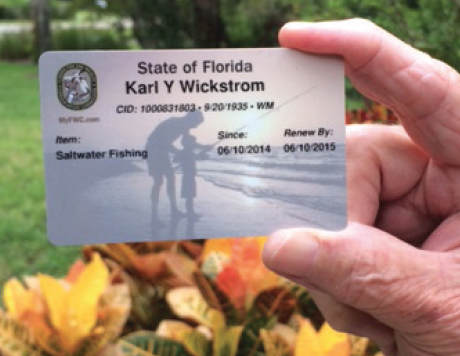
Credit: www.floridasportsman.com
In-person Renewal
Renewing your fishing license in person can be a straightforward process. It allows you to speak directly with a representative. You can ask questions and get clarification on any issues. This method is reliable for those who prefer face-to-face interaction.
Where To Renew
Visit your local fishing license authority. This could be a government office or an authorized retailer. Some outdoor sporting goods stores also offer this service. Check online for the nearest location to you.
Required Documents
Bring your current fishing license. This helps verify your identity and previous license details. You may also need a valid ID, such as a driver’s license. Proof of residency might be required in some states. Always check the specific requirements for your area before you go.
Renewal Fees
Understanding the renewal fees for your fishing license is crucial. These fees vary by state, license type, and other factors. Knowing the exact costs will help you budget and plan your fishing trips accordingly.
Cost Breakdown
Different states have varying fee structures. Here’s a simple breakdown:
| State | Annual License Fee | Renewal Fee |
|---|---|---|
| California | $52.66 | $52.66 |
| Florida | $17.00 | $17.00 |
| Texas | $30.00 | $30.00 |
These fees are for standard resident licenses. Non-resident fees are often higher.
Discounts And Exemptions
Many states offer discounts or exemptions. These are for specific groups. Some common discounts include:
- Senior Citizens – Reduced fees for those aged 65 and older.
- Military Personnel – Discounts for active duty and veterans.
- Disabled Individuals – Special rates or free licenses.
Check your local regulations for more details. Ensure you qualify for any discounts before applying.
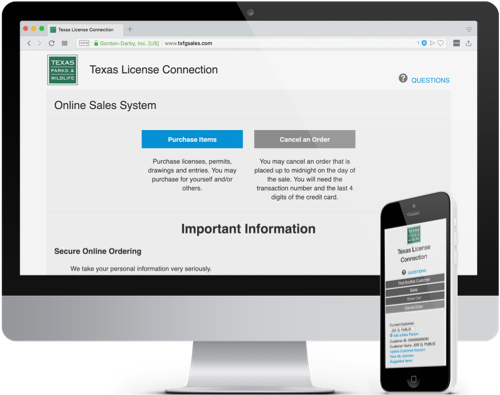
Credit: tpwd.texas.gov
Special Considerations
Renewing your fishing license can depend on your personal circumstances. There are special rules for certain groups of people. This section covers two key groups: military personnel and senior citizens.
Military Personnel
If you are an active-duty military member, you may have special considerations for your fishing license renewal. Some states offer extended license periods or discounts for active-duty members. Check with your local wildlife agency for specific rules.
In some states, military personnel on leave or furlough can fish without a license. It’s important to carry your military ID and proof of leave. This ensures that you can enjoy fishing without worrying about a license.
Senior Citizens
Many states offer special fishing licenses for senior citizens. These licenses are often at a reduced cost or even free. Age requirements for senior licenses vary by state, usually starting at age 65.
Some states offer lifetime licenses for senior citizens. These licenses allow you to fish for the rest of your life without renewing. Check your state’s regulations to see if you qualify for a senior discount or lifetime license.
| State | Military Personnel Benefits | Senior Citizen Benefits |
|---|---|---|
| California | Free license for active-duty on leave | Reduced cost for age 65+ |
| Texas | Discounted license for active-duty | Free license for age 65+ |
| Florida | Free license for active-duty on leave | Reduced cost for age 65+ |
Troubleshooting Common Issues
Renewing a fishing license can sometimes be tricky. Issues may pop up that make the process harder. Here are some common problems and how to solve them.
Lost Licenses
Lost your fishing license? It happens. Start by checking your email. Many states send a digital copy when you first buy it. If you can’t find it, visit the official state website. They often have options to reprint or resend your license. You might need your ID or proof of purchase. Follow the steps provided.
Technical Problems
Technical problems can occur during the renewal process. If the website crashes, wait a few minutes and try again. Sometimes, updating your browser helps. Clear your cache and cookies too. If the issue persists, contact customer support. Have your details ready. They can guide you through the process.
Frequently Asked Questions
When Should I Renew My Fishing License?
You should renew your fishing license before it expires. Licenses are typically valid for one year. Check your local regulations for specific dates.
How Do I Know My License Expiration Date?
Your fishing license expiration date is printed on the license itself. You can also check online through your state’s fishing and wildlife department website.
Can I Renew My Fishing License Online?
Yes, most states offer online renewal for fishing licenses. Visit your state’s fishing and wildlife department website to renew easily.
What Happens If I Don’t Renew My Fishing License?
If you don’t renew your fishing license, you may face fines or penalties. Fishing without a valid license is illegal.
Conclusion
Renewing your fishing license is essential. It ensures you comply with local laws. Check your state’s regulations for exact renewal dates. Mark your calendar to avoid lapses. Regular renewals help protect fish populations. They also support conservation efforts. Always keep your license up to date.
This allows you to enjoy fishing without worries. Happy fishing!


